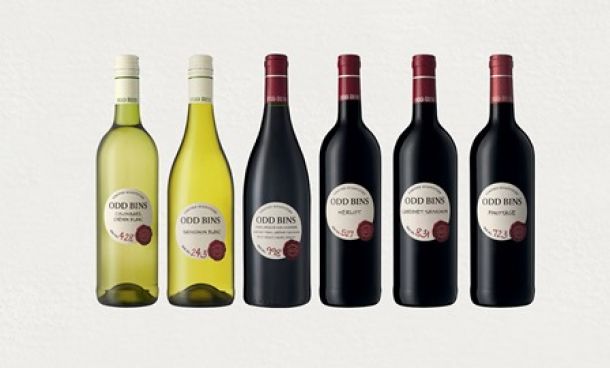UK drinkers puzzled by term ‘Craft Beer’
Whilst craft drinks have revolutionised the alcoholic drinks industry over the past decade, it seems that many Brits are still unsure as to what the term 'craft' actually means.
New research from Mintel highlights strong demand for alcoholic drink companies to create a definition, as 59% of those who buy alcoholic drinks say it’s important that the alcohol industry defines what is meant by the term ‘craft drinks’.
Today, a third (33%) of Brits who buy alcoholic drinks say it is hard to tell which brands are ‘craft’ and 30% say they don’t understand what the term ‘craft’ means. Despite this, over a third (38%) of Brits purchased a craft alcoholic drink in the three months to November 2015.
When it comes to their own definition, a unique flavour is most widely used to define an alcoholic drinks brand as ‘craft’, cited by 47% of Brits. Other factors include a brand which uses high quality ingredients (42%), takes more time or care in production (41%) and one which produces drinks in small volumes, for instance a microbrewer (41%).
And it seems that small is beautiful for craft drinkers. Over a third (35%) of Brits who buy alcoholic drinks say that brands cannot be ‘craft’ if they are acquired by large companies and 28% agree that brands cannot be ‘craft’ if they get too large in size. Indeed many Brits are keen to support the little guys, as over half (54%) of those who buy alcoholic drinks say that buying craft alcoholic drinks is a good way to support small businesses.
Chris Wisson, Senior Drinks Analyst at Mintel, said: “The lack of an industry-agreed definition has not hindered the growth of craft so far, but it has led to the term being misinterpreted and increasingly, misused. Consumers are likely to become increasingly demanding of brands which claim to be ‘craft’, and the onus is on these brands to ensure that they can provide clear evidence of their craft credentials. The uncertainty around the term dilutes its ability to differentiate brands or justify a higher price. This suggests the need to reference other, more tangible points of difference to capture customers’ attention.”
Indeed whilst there is strong interest in craft alcoholic drinks, Mintel research finds that excessively high pricing may hinder the growth of the sector in the future. Two in five (41%) Brits who buy alcoholic drinks say that you often get less for your money with craft alcoholic drinks, for example smaller bottles for the same price, while only 28% say that craft drinks are worth paying more for.
What’s more, just one in four (24%) beer buyers are willing to spend over £4 on a pint of craft beer in the on-trade and 21% are unprepared to even go above £3 per pint. On the other hand, there are a small number of consumers who clearly have strong beliefs in craft credentials as 5% of beer buyers are prepared to exceed £5 on a pint of craft beer.
“Many craft beers are justifiably more expensive than mainstream brands, reflecting economies of scale but also the ingredients used. While consumer interest in seeing a wider variety of beers in the on-trade should benefit craft variants, overpricing poses a potential barrier to the continued growth of the segment,” Wisson added.
Today, purchase of craft brands is common across a number of drinks. Over a third (38%) of adults purchased a craft alcoholic drink in the three months to November 2015, while 69% bought mainstream brands of alcoholic drinks.
And it seems that many are committed to the craft cause, as one in four (26%) Brits who buy alcoholic drinks say they like to go to craft drinks events and festivals, whilst 23% say they prefer buying craft drinks over mainstream drinks, rising to 34% of men aged 25-34. Indeed, Mintel research shows that the most likely craft buyers are men, with 46% of men buying a craft brand in the three months to November 2015.
Indeed for the majority of drinkers, it seems it is more about what is in the glass rather than who makes it. Approaching three quarters (70%) of Brits who buy alcoholic drinks say that taste is more important than the producer of the drink.
“The importance attached to taste is likely to be driving the interest in craft-style products from larger drink producers. This suggests that the large drinks companies can tap into the craft movement either by producing their own craft products or by acquiring smaller companies, with their success ultimately likely to be determined by the actual quality of the drinks,” Wisson concluded.
News Category
- International retailers
- On the move
- Awards and achievements
- Legislation
- Wine and liquor
- Africa
- Going green
- Supplier news
- Research tools
- Retailer trading results
- Supply chain
- Innovation and technology
- Economic factors
- Crime and security
- Store Openings
- Marketing and Promotions
- Social Responsibility
- Brand Press Office
Related Articles

Makro secures exclusive rights to SA’s most sou...

Checkers adds 41 new wines to Odd Bins range

With petrol at almost R20 a litre, food prices ...

Petrol price shocker for South Africa


